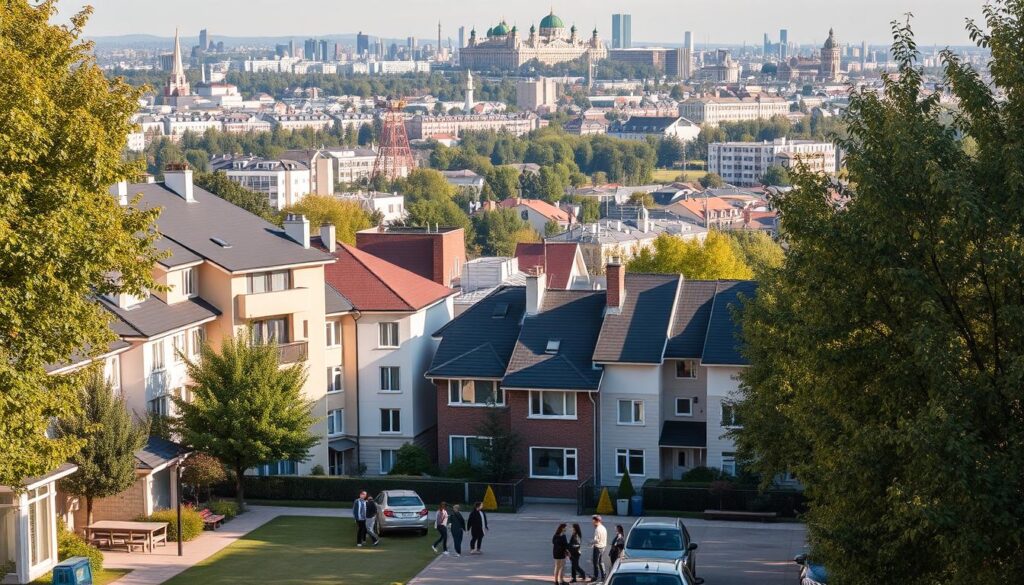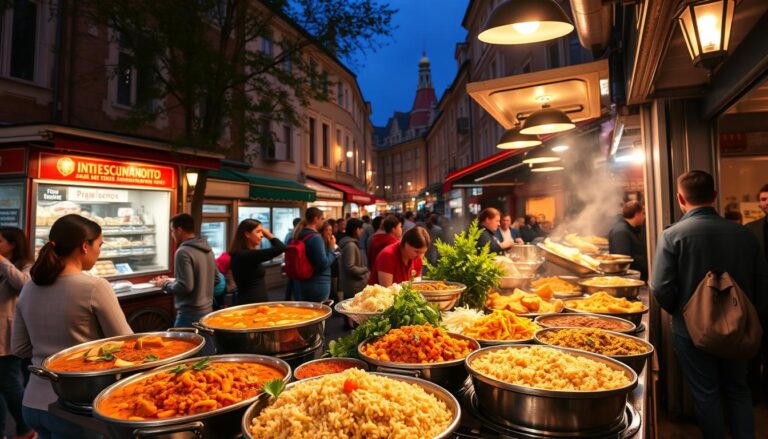Have you ever wondered why so many MBBS aspirants choose to study in Russia? The answer lies in its affordability and quality education. However, the cost of living can vary greatly depending on the city you choose. This article will help you understand the differences between Moscow and Kazan, two of the most popular destinations for medical students.
When planning your budget, it’s essential to consider factors like rent, utilities, and daily expenses. Moscow, being a major metropolitan city, tends to have higher costs compared to Kazan. For instance, monthly rent in Moscow can range from 15,000 to 30,000 rubles, while in Kazan, it’s often lower.
Understanding these differences can help you make an informed decision. Whether you’re looking for a bustling city life or a more relaxed environment, knowing the cost implications is crucial. We’ll dive deeper into these aspects to help you plan effectively.
For more insights on studying MBBS in Russia, check out our detailed guide here.
Introduction: Comparing Living Expenses in Moscow vs. Kazan
Understanding the cost differences between cities is key for planning your student life. For international students, choosing between Moscow and Kazan can significantly impact your monthly budget. Both cities offer unique experiences, but their costs vary widely.
Moscow, as a major metropolitan area, tends to have higher costs. On the other hand, Kazan offers a more affordable lifestyle. Knowing these differences helps you make informed decisions about your accommodation and daily expenses.
Accommodation is one of the biggest factors affecting your budget. In Moscow, renting an apartment can cost between 15,000 to 30,000 rubles per month. In Kazan, the same option is often more affordable, making it a popular choice for students.
Here’s a quick overview of what to expect:
- Dormitories: On-campus housing is cheaper and ideal for those on a tight budget.
- Private Apartments: Offers more privacy but comes at a higher cost.
- Utilities: Include electricity, water, and internet, which vary by city.
Planning your monthly expense is crucial. Whether you prefer the bustling life of Moscow or the calm vibe of Kazan, knowing the costs helps you prepare better. For more tips on managing your budget, check out our guide on living expenses in Samarkand.
Breakdown of living expenses in Russia for students
Planning your monthly budget as a student requires careful consideration of various factors. From housing to groceries, each expense plays a role in your financial planning. Let’s dive into the details to help you manage your resources effectively.
Accommodation Costs
Housing is one of the most significant expenses. University dormitories are the most affordable option, costing between 500 to 5,000 rubles per month. Private rentals, on the other hand, can range from 15,000 to 35,000 rubles, depending on the city and location.
Food & Grocery Expenses
Food and groceries are essential parts of your budget. On average, students spend between 10,000 to 20,000 rubles per month on meals. Weekly expenses can vary, with a typical grocery bill ranging from 2,000 to 5,000 rubles.
Transportation, Utilities, and Miscellaneous
Transportation costs depend on your mode of travel. Monthly public transit passes cost around 1,740 rubles, while student concessions can reduce this price. Utilities like internet and mobile services add another 800 rubles per month. Miscellaneous expenses, including entertainment and personal needs, can go up to 4,000 rubles monthly.
| Expense | Moscow (Rubles) | Kazan (Rubles) |
|---|---|---|
| Dormitory | 5,000 | 3,000 |
| Private Rental | 30,000 | 15,000 |
| Food & Groceries | 20,000 | 15,000 |
| Transportation | 1,970 | 1,500 |
| Utilities | 800 | 700 |
| Miscellaneous | 4,000 | 3,000 |
Housing & Accommodation Insights for MBBS Students
Choosing the right housing option is a critical decision for MBBS students. It impacts your budget, daily life, and overall experience. Let’s explore the two main types of accommodation: university dormitories and private rentals.
University Dormitories vs. Private Rentals
University dormitories are a popular choice due to their affordability. They cost between 500 to 5,000 rubles per month, making them ideal for students on a tight budget. These dormitories often come with basic amenities and a supportive community.
Private rentals, on the other hand, offer more privacy and flexibility. However, they are significantly more expensive, especially in cities like Moscow. Monthly rents can range from 15,000 to 35,000 rubles, depending on the location and type of apartment.
Cost Differences in Moscow and Kazan
Housing costs vary dramatically between Moscow and Kazan. In Moscow, private rentals are at the higher end of the spectrum, while Kazan offers more affordable options. Dormitory costs are also lower in Kazan, making it a budget-friendly choice.

| Type | Moscow (Rubles) | Kazan (Rubles) |
|---|---|---|
| Dormitory | 5,000 | 3,000 |
| Private Rental | 30,000 | 15,000 |
When choosing between these options, consider factors like cost, convenience, and the quality of service. Each type of housing has its pros and cons, so weigh them carefully to make the best decision for your needs.
Food, Transportation, and Daily Utility Expenses
Managing daily costs is a key part of student life abroad. From meals to transport, understanding these expenses helps you plan better. Let’s break down the details to make budgeting easier.
Restaurant and Meal Costs
Eating out can be convenient but costly. On average, a meal at an inexpensive restaurant costs around 700 rubles. For a mid-range restaurant, expect to spend 3,000 rubles for two people. Cooking at home is a budget-friendly alternative. Weekly groceries typically range from 2,000 to 5,000 rubles, depending on your location.
Here’s a quick comparison:
- Eating Out: 700-3,000 rubles per meal.
- Cooking at Home: 2,000-5,000 rubles weekly.
Public Transit and Communication Services
Transportation is another essential expense. A monthly public transit pass costs around 2,300 rubles, but student discounts can lower this. Taxis are pricier, with a starting fare of 150 rubles. For communication, a mobile plan with calls and 10GB data averages 480 rubles monthly. Internet services cost about 585 rubles for 60 Mbps or more.
Here’s a breakdown of monthly costs:
- Public Transit: 2,300 rubles (with student discounts).
- Mobile Plan: 480 rubles.
- Internet: 585 rubles.
Your lifestyle choices can significantly impact your monthly spending. Opting for budget-friendly options and leveraging student discounts can help you save. For more tips on managing your budget, check out our guide on daily life as a medical student.
City Comparison: Moscow vs. Kazan Cost Dynamics
When deciding between Moscow and Kazan, understanding the cost dynamics is essential for MBBS students. Both cities offer unique opportunities, but their affordability varies significantly. This section will explore key factors like housing, groceries, and cultural activities to help you make an informed choice.
Luxury vs. Budget Living Options
Moscow is known for its luxury living options, but they come at a higher price. Monthly rent for a one-room apartment averages 72,600 rubles, making it one of the most expensive cities in the country. On the other hand, Kazan offers more budget-friendly options, with similar apartments costing around 33,900 rubles.
Here’s a quick comparison of housing costs:
- Moscow: 72,600 rubles for a one-room apartment.
- Kazan: 33,900 rubles for a similar option.
For students, choosing between luxury and budget living depends on their financial goals. While Moscow provides a vibrant urban experience, Kazan offers affordability without compromising quality.
Lifestyle and Cultural Impact on Expenses
Cultural activities and entertainment also play a role in your monthly budget. Moscow hosts numerous high-end events, with tickets often costing 3,000 rubles or more. In contrast, Kazan’s cultural scene is more affordable, with many events priced under 1,000 rubles.
Groceries and health-related costs also differ. Weekly grocery expenses in Moscow can reach 5,000 rubles, while in Kazan, they average around 3,000 rubles. Health services in Moscow are more advanced but pricier, whereas Kazan provides quality care at lower costs.
Here’s a breakdown of lifestyle expenses:
- Entertainment: Moscow (3,000+ rubles), Kazan (under 1,000 rubles).
- Groceries: Moscow (5,000 rubles weekly), Kazan (3,000 rubles weekly).
- Health Services: Moscow (higher cost), Kazan (affordable).
Understanding these dynamics helps you align your lifestyle with your budget. Whether you prefer the bustling life of Moscow or the calm vibe of Kazan, planning ahead ensures a smooth experience.
Smart Ways to Manage Your Student Budget
Managing your finances as a student doesn’t have to be overwhelming. With the right strategies, you can save money while focusing on your studies. Whether it’s securing affordable housing or leveraging discounts, small changes can make a big difference.
Effective Budgeting Strategies
Start by tracking your monthly spending. This helps identify areas where you can cut costs. For example, cooking at home instead of eating out can save up to 10,000 rubles monthly. Use budgeting apps to monitor your expenses and set financial goals.
Securing on-campus dormitory housing is another smart move. It’s not only affordable but also convenient. In Moscow, dormitories cost around 5,000 rubles, while in Kazan, they’re even cheaper at 3,000 rubles. This leaves more money for other essentials like healthcare and transport.
Part-time work or internships can also supplement your income. Many students earn between 15,000 to 30,000 rubles monthly. Look for opportunities that align with your schedule and field of study.
Student Discounts and Scholarship Opportunities
Take advantage of student discounts to reduce costs. Public transport passes, for instance, are cheaper for students. In Moscow, a monthly pass costs 1,970 rubles, while in Kazan, it’s 1,500 rubles. Always carry your student ID to access these savings.
Scholarships are another excellent way to ease financial pressure. Many schools offer merit-based or need-based aid. Research and apply early to maximize your chances. Additionally, the International Student Identity Card (ISIC) provides access to over 150,000 discounts globally.
| Category | Moscow (Rubles) | Kazan (Rubles) |
|---|---|---|
| Dormitory | 5,000 | 3,000 |
| Public Transport | 1,970 | 1,500 |
| Part-Time Work | 15,000-30,000 | 15,000-30,000 |
By implementing these strategies, you can manage your money effectively and focus on your academic goals. Smart budgeting not only reduces stress but also enhances your overall experience as a student.
Conclusion
Choosing between Moscow and Kazan involves more than just academic preferences. The cost dynamics in these cities vary significantly, impacting your monthly budget. Moscow offers a vibrant urban experience but comes with higher prices, while Kazan provides affordability without compromising quality.
Understanding these differences is crucial. For instance, a meal at a mid-range restaurant in Moscow costs around 3,000 rubles, while in Kazan, it’s often cheaper. Similarly, public transport like buses and trains is more budget-friendly in Kazan, making daily commuting easier on your wallet.
Winter months can also influence your expenses, with heating costs higher in Moscow. By planning ahead and leveraging student discounts, you can manage your budget effectively. Whether you prefer the bustling life of Moscow or the calm vibe of Kazan, aligning your lifestyle with your financial goals is key.
We encourage you to research further and contact universities for updated entrance requirements. If you have questions or need more insights, feel free to reach out. Your journey as a student in Russia starts with informed decisions.




